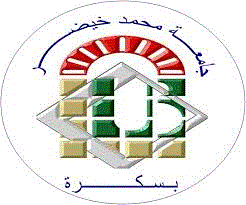| Titre : | Composition de services basée sur les relations sociales entre objets dans l’IoT Service composition based on social relations between things in IoT |
| Auteurs : | Maroua Meissa, Auteur ; Saber Benharzallah, Auteur |
| Type de document : | Thése doctorat |
| Editeur : | Biskra [Algérie] : Faculté des Sciences Exactes et des Sciences de la Nature et de la Vie, Université Mohamed Khider, 2022 |
| Format : | 1 vol. (121 p.) / 30 cm |
| Langues: | Anglais |
| Mots-clés: | Service composition , Recommendation ,Social Internet of Things, Social relations, Trus |
| Résumé : |
With the rapid development of service-oriented computing applications and social Internet of things (SIoT), it is becoming more and more difficult for end-users to find relevant services to create value-added composite services in this big data environment. Therefore, this work proposes S-SCORE (Social Service Composition based on Recommendation), an approach for interactive web services composition in SIoT ecosystem for end-users. The main contribution of this work is providing a novel recommendation approach, which enables to discover and suggest trustworthy and personalized web services that are suitable for composition. The first proposed model of recommendation aims to face the problem of information overload, which enables to discover services and provide personalized suggestions for users without sacrificing the recommendation accuracy. To validate the performance of our approach, seven variant algorithms of different approaches (popularity-based, user-based and item-based) are compared using MovieLens 20M dataset. The experiments show that our model improves the recommendation accuracy by 12% increase with the highest score among compared methods. Additionally it outperforms the compared models in diversity over all lengths of recommendation lists. The second proposed approach is a novel recommendation mechanism for service composition, which enables to suggest trustworthy and personalized web services that are suitable for composition. The process of recommendation consists of online and offline stages. In the offline stage, two models of similarity computation are presented. Firstly, an improved users’ similarity model is provided to filter the set of advisors for an active user. Then, a new service collaboration model is proposed that based on functional and non-functional features of services, which allows providing a set of collaborators for the active service. The online phase makes rating prediction of candidate services based on a hybrid algorithm that based on collaborative filtering technique. The proposed method gives considerable improvement on the prediction accuracy. Firstly, it achieves the lowest value in MAE (Mean Absolute Error) metric and the highest coverage values than other compared traditional collaborative filtering-based prediction approaches. |
| Sommaire : |
Acknowledgement vii Abstract ix Résumé xi List of Abbreviations and Acronyms xiii List of Figures xvi List of Tables xvii Introduction 1 Research Scope . 9 Research Challenges . 9 Dissertation Aims and Contributions . 9 Scenario Examples in E-Health 9 Thesis Outline 9 Publications and Communications 9 Part I: State of the Art 13 1 Preliminary Notions 13 1.1 Introduction 14 1.2 The Evolution of the Web 14 1.3 Web of Things . 14 1.4 Social Aspect of IoT 18 1.5 Summary . 21 2 Literature Review 23 2.1 Introduction . 24 2.2 Service Composition Taxonomy .. 24 2.3 Recommender System Background 30 2.4 Summary .. 37 Part II: Related work 41 3 Service Composition: From Web 2.0 to Web 4.0 41 3.1 Introduction .. 42 3.2 Social Service Composition in Classical Web 42 3.3 Service Composition in Web-based IoT Environment 46 3.4 Service Composition Challenges in IoT 52 3.5 Summary 53 4 Web service Recommendation Models 55 4.1 Introduction 56 4.2 Classification of Web Service Recommender Systems 56 4.3 Service Recommendation for Composition Models 62 4.4 Filtering Techniques for WSRec Models 65 4.5 Recommender System Challenges and Solutions 67 4.6 Summary 68 Part III: Contributions 71 5 First Contribution: Recommendation Approach for Service Discovery 71 5.1 Introduction 72 5.2 Service Composition Platfrom 72 5.3 Framework Components 73 5.4 Discovery Process 74 5.5 Experimental Evaluation 77 5.6 Results and Discussion 79 5.7 Summary 81 6 Second Contribution: Recommendation Approach for Service Composition 83 6.1 Introduction 84 6.2 Recommendation Process 84 6.3 Dataset and Experimental Setup . 95 6.4 Evaluation Metrics 97 6.5 Results and Discussion 97 6.6 Summary 102 Conclusion 103 Contributions 106 Future Works . 106 Bibliographie 121 |
Disponibilité (1)
| Cote | Support | Localisation | Statut |
|---|---|---|---|
| TINF/175 | Théses de doctorat | bibliothèque sciences exactes | Consultable |





